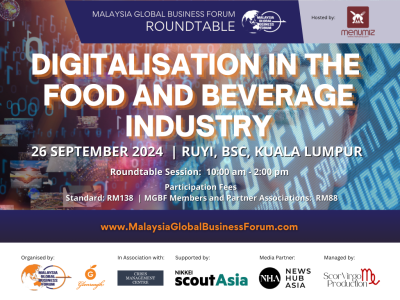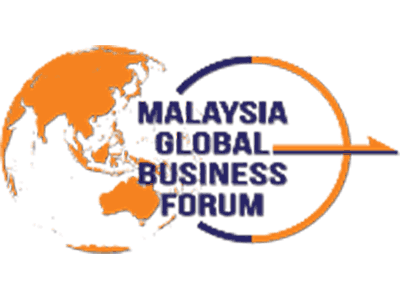
KUALA LUMPUR, 16 January 2020 – The Asian economy is set for a rebound in 2020 as some of 2019’s export headwinds ease, policymakers pro-growth policies reinvigorate domestic economies, Southeast Asia continues to emerge as a global powerhouse, and consumption remains a bright spot, according to Deloitte’s latest Voice of Asia report.
However, the report argues, three main downside risks must be contained for this predicted rebound to emerge. That is, economies should avoid excessive stimulus that could cause a boom-bust cycle, US policy needs to remain stable, and financial risks, particularly from quantitative easing, need to continue to be reined in.
In Southeast Asia, pro-growth policies have been encouraged by rate cuts in the US and Europe, and economies including Indonesia, the Philippines, Malaysia and Singapore are expected to increase spending on public projects as a proportion of GDP.
“There are also positive signs on the trade integration front,” says Deloitte Asia Pacific Clients & Industries Leader Vivian Jiang. “The Comprehensive and Progressive Trans-Pacific Partnership gives its 11 members, including four ASEAN economies, enhanced market access, and the Regional Comprehensive Economic Partnership will reduce export-import paperwork and has introduced a limited degree of service sector liberalisation.”
Addressing specific sectors, the report suggests the automotive and aviation sectors will be bright spots after a period in the doldrums, with electronics another highlight.
“The decline in the automotive sector since 2018 was caused by factors including new emission standards in several markets, and other restrictions on production. This decline is likely to reverse this year, with a further boost from continued luxury sales volume growth” says Vivian. “Problems in the aviation sector are likely to ease as well, and there are signs of a resurgence in semiconductor billings, which should boost the electronics sector to help drive regional exports.”
On consumption, the report suggests, Asia can look forward to increased demand driven by labor market stability, increasing remittances, and easing monetary conditions.
“China’s consumer story remains intact even as household leverage continues to increase,” says Deloitte China Chief Economist Sitao Xu. “High debt is bound to limit people’s ability to consume, and banks’ non-performing loans could rise if home prices decline, but there tends to be more willingness among Chinese parents to help out their families if debt does become an issue.”
The Voice of Asia report is also positive on prospects for the infrastructure sector, which is increasingly emphasised by governments across the region. In Indonesia, the Philippines, Malaysia and Singapore, public works spending is rising as a proportion of GDP.
Market-by-market outlook
Malaysia
Strong domestic demand led by household spending underpin Malaysia’s economic resilience, and its exports have outperformed. Its competitive currency, growth in manufacturing activity and a resumption in infrastructure projects are expected to support continued economic growth.
Australia
Australia’s economic slowdown has been caused by home-grown factors including worsening drought conditions and house price declines. Although tax and interest rates have been cut, there may not be a meaningful pickup in the Australian economy until 2021.
China
The Chinese Mainland is regaining its balance despite a long-term, secular growth downtrend, and Hong Kong, despite well-publicised difficulties over the past several months, remains a world leading financial center, with its currency peg to the US dollar holding firm, and could benefit from government stimulus.
India
India’s economy has been suffering from the effects of the Non-Bank Financial Companies (NBFC) crisis after problems in its formal banking sector. Corporations are still highly leveraged. It should bottom out in 2019 but remain subdued despite government stimulus and amid considerable downside risks.
Indonesia
Indonesia looks set to maintain steady growth of about 5 percent in 2020, with a young workforce, increasing urbanisation and monetary policy support for demand. The economy is becoming more stable but has yet to fully take advantage of the diversion of production out of China.
Japan
Exports have contracted and business confidence is subdued, and natural disasters have further depressed economic activity, but GDP growth has been quite resilient. Economic growth is expected to sustain at about 0.5 percent over the next two years.
New Zealand
The economy slowed in early 2019, largely due to global headwinds. It is expected to return to trend levels of about 2.5 percent growth in the next couple of years, supported by factors including a tight job market, still-strong population growth and decent export prices and volumes.
The Philippines
The Philippines economy bottomed out in mid-2019, and is set to be boosted by a revival in the electronics sector, strengthening exports thanks to an expected pick up in the Chinese economy, continued strength in remittances and policy support that should drive consumption.
Singapore
Singapore is also expected to enter a recovery in 2020, supported by improving global growth and stronger electronics and precision engineering demand. There are also green shoots in finance, insurance, essential services and the “new economy”. The outlook for investment growth is also positive.
South Korea
We are upbeat about prospects for the South Korean economy in 2020, with an expect increase in demand for its manufactured goods. Government measures including a record budget of KRW513.5 trillion (USD4.36 billion) for the year should protect against downside risks.
Taiwan
Taiwan’s economy was resilient in 2019 despite being caught in the crossfire of the US-China trade war and the step-down in the global electronics cycle. We expect the economy to be outperform in 2020 on rising private investment, government policy to attract high-end manufacturing and other factors.
Thailand
After a slow start, Thailand’s economy is expected to pick up in 2H20, with export growth likely to have bottomed out, increasing tourist arrivals, rising farm incomes, positive fiscal policy and a recovery in private investment.
Vietnam
Vietnam is expected to remain one of Southeast Asia’s outperformers in 2020. It is one of the main beneficiaries of the relocation of production from China, which is prompting a surge in foreign investment. Its main challenges are manpower constraints, supply chain frictions and an infrastructure gap.
Services
Stakeholder mapping, analysis, engagement and communication needs to be detailed to avoid business losses or even worse, a crisis. How can you do this effectively to prevent failure? ...
Data-driven business decisions have never been as crucial, especially in this era. MGBF leverages off, technology, experience and market presence to aid businesses in making accurate decisions. ...
MGBF provides comprehensive strategic advice and results-focused solutions to solve clients' problems in business-government relations so they can focus on their core business. ...
A critical business challenge is meeting the right decision-makers and potential buyers through the best channel and platform. How will you improve your business competency? ...
Upcoming Events
MGBF founding chairman Nordin Abdullah and UMW Toyota president Datuk Ravindran K. will delve into the convergence of automotive innovation and environmental sustainability in Penang, Sarawak, Johor and Pahang.
Hosted by menumiz™ – an end-to-end restaurant management system – this roundtable will feature a case study presentation and a panel session to discuss the latest digital trends, challenges, and opportunities within the food and beverage sector.
In this episode of 'A Working Lunch with Nordin', MGBF's founding chairman, Nordin Abdullah, will host this discussion focusing on the biggest threats and opportunities for businesses as we look to manage change in the South China Sea.
This MGBF Roundtable will focus on regional food security issues and trends in the regional supply chain, and trade regulations and policies, including a new geopolitical tool i.e., weaponisation of supply chains.
MGBF In The News
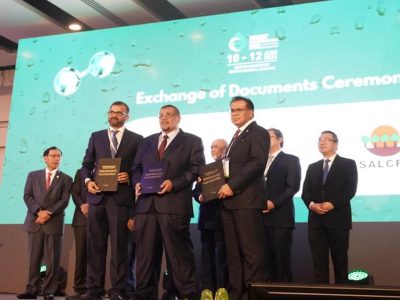
Planet QEOS, KIS BlOCNG San Bhd, and the Sarawak Land Consolidation and Rehabilitation Authority (SALCRA) have officially signed a tripartite memorandum of understanding (MoU) to establish a collaborative framework aimed at producing bio-hydrogen via the Steam Biomethane Reforming (SBMR) Process. The MoU was signed by Planet QEOS executive chairman Dino […]
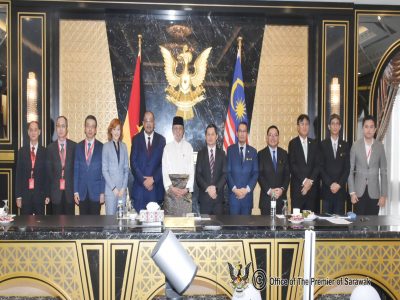
Planet QEOS and China Machinery Engineering Corporation (CMEC) are interested in investing RM10 billion to co-develop advanced Megawatt peak (MWp) agrovoltaic in Baram, to further boost Sarawak’s green energy initiative and food security. Sarawak Premier Datuk Patinggi Tan Sri Abang Johari Tun Openg was briefed on Friday by both the […]
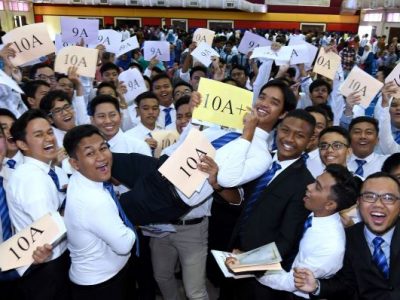
Last week SPM results came out, 373,974 aspirants who have been waiting patiently over the last few months would now know their fate. Some 10,109 have received all A’s, the golden standard of academic success and the ticket to those looking to study the “more advanced” subjects in university. Proudly, […]

The classic knee-jerk reaction is to say, fire the coach, change the leadership of associations, and reduce the funding till they start performing better. This kind of negative reinforcement may work for kindergarten children, but we are dealing with high-performance adults – individuals much further along in their psychological and […]
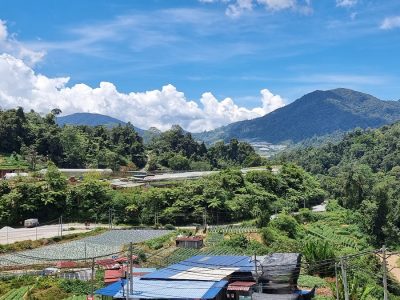
Since its earliest tea plantations in 1929, Cameron Highlands has grown to become a key player in the agricultural landscape of Malaysia, producing 40 per cent of all vegetables grown. Despite Malaysia shifting its economic focus away from agriculture, the industry remains imperative for food security and the livelihoods of […]

Although at first glance the travel industry and the agricultural sector appear to have nothing in common, they actually share more than meets the eye. The economic benefits of tourism to the agricultural sector can be multiplied several times over. “Tourism brings the end consumers closer to the source, which […]
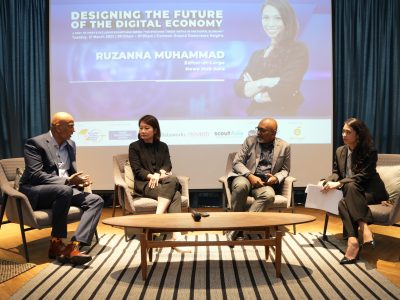
The Malaysia Global Business Forum (MGBF) recently held a high-level roundtable themed ‘Designing the Future of the Digital Economy’, attended by industry leaders and business associations. The guest of honour was Yang Berhormat Syerleena Abdul Rashid, the Member of Parliament (MP) for Bukit Bendera in Penang. The MP’s Special Session […]

The Malaysia Global Business Forum (MGBF) will be hosting a roundtable on ‘Designing the Future of the Digital Economy’ on 23 February 2023. It is the culmination of the first three MGBF Exclusive Roundtable Series titled ‘The Evolving Threat Matrix in the Digital Economy’ held throughout 2022. According to the […]
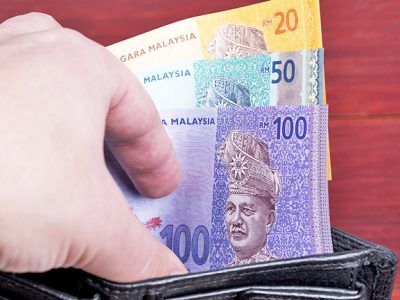
The Founding Chairman of the Malaysia Global Business Forum (MGBF), Nordin Abdullah, today spoke on Bernama TV’s leading English talk show, The Brief, hosted by Jessy Chahal, on the topic of a stable political reality and what that means for the Malaysian economy. Nordin said, “The first thing that it […]

More than 1,100 years ago, Muhammad ibn Musa al-Khwarizmi was developing the mathematical formulas that we know today as algorithms which now have become so intertwined with the business fortunes of global media giants and the very fabric of geopolitics. A series of recent high level international reports have revealed […]
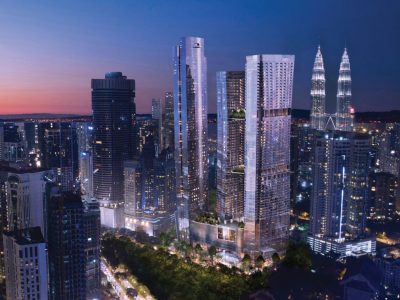
KSK Land has been recognised by the Malaysia Global Business Forum (MGBF) for its role in attracting high net-worth individuals to Malaysia post-pandemic. The first challenge in investor attraction is “selling” the country. In the context of Asia, Malaysia is competing with some very established investment destinations. The second […]

Malaysia, in particular Kuala Lumpur, continues to position itself as a regional centre to do business, educate a family and enjoy a global lifestyle. One company, KSK Land, has taken the lead in positioning itself and the city of Kuala Lumpur as a property investment destination for the global citizen […]
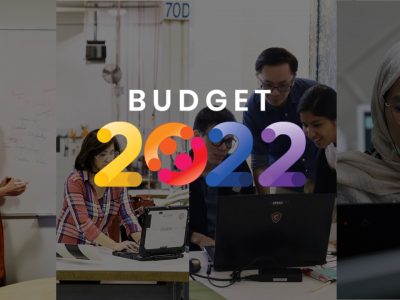
The upcoming budget represents an opportunity to build resilience in the critical sectors that will form the backbone of the country’s future-facing economic ambitions. This however needs to be achieved in the context of managing the community sectors most impacted by COVID-19 over the past two years. The Keluarga Malaysia (Malaysian Family) […]

Malaysia Global Business Forum (MGBF) has moved to support the creative economy as the overall economy moves into a recovery phase following the COVID19 pandemic. As a step in the direction of normalcy, the MGBF has agreed to host the art exhibition “I Know You’re Somewhere So Far” by one […]
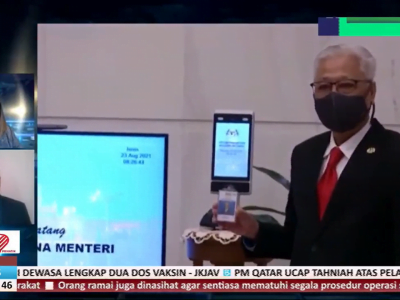
Congratulations to Datuk Seri Ismail Sabri Yaakob for taking up the mantle of the ninth prime minister of Malaysia. There is nothing normal about the situation; it could not have been scripted but it has kept the spectrum of media, mainstream and social, gripped. The first order of business for […]
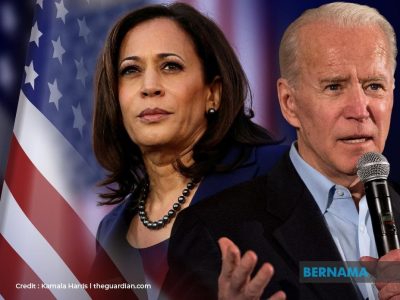
In a stirring speech to the nation, President Joseph R. Biden, Jr. stamped his brand of leadership on the presidency, in his first act as the 46th president of the United State of America, it signaled several shifts. Perhaps the weather was foreboding with snow falling before the ceremony that […]

KUALA LUMPUR, 6 July 2022 – As the global economy continues to deal with unprecedented levels of disruption caused by the pandemic and the conflict between Russia and Ukraine, the convergence of energy security and food security issues has become a front-of-mind issue faced by policy makers and consumers alike. […]

KUALA LUMPUR, 23 June 2022 — Malaysia Global Business Forum (MGBF) ties up with scoutAsia to ensure that businesses are equipped with deeper regional insights. The past two years has seen a massive shift in the way businesses are conducted with digitisation, digitalisation and automation continuously being adopted to improve […]
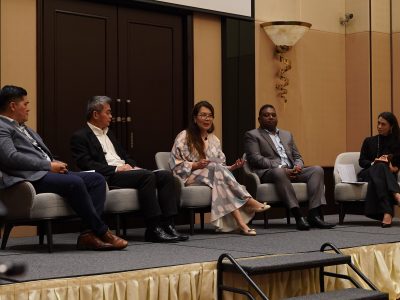
KUALA LUMPUR, 25 May 2022 – The Malaysia Global Business Forum (MGBF)’s exclusive roundtable on ‘Security Concerns in Critical Value Chains’ was held in a hybrid setting yesterday at the Eastin Hotel Kuala Lumpur. The guest of honour was Yang Berbahagia Tan Sri Dato’ Seri Rafidah Aziz, former minister of […]








